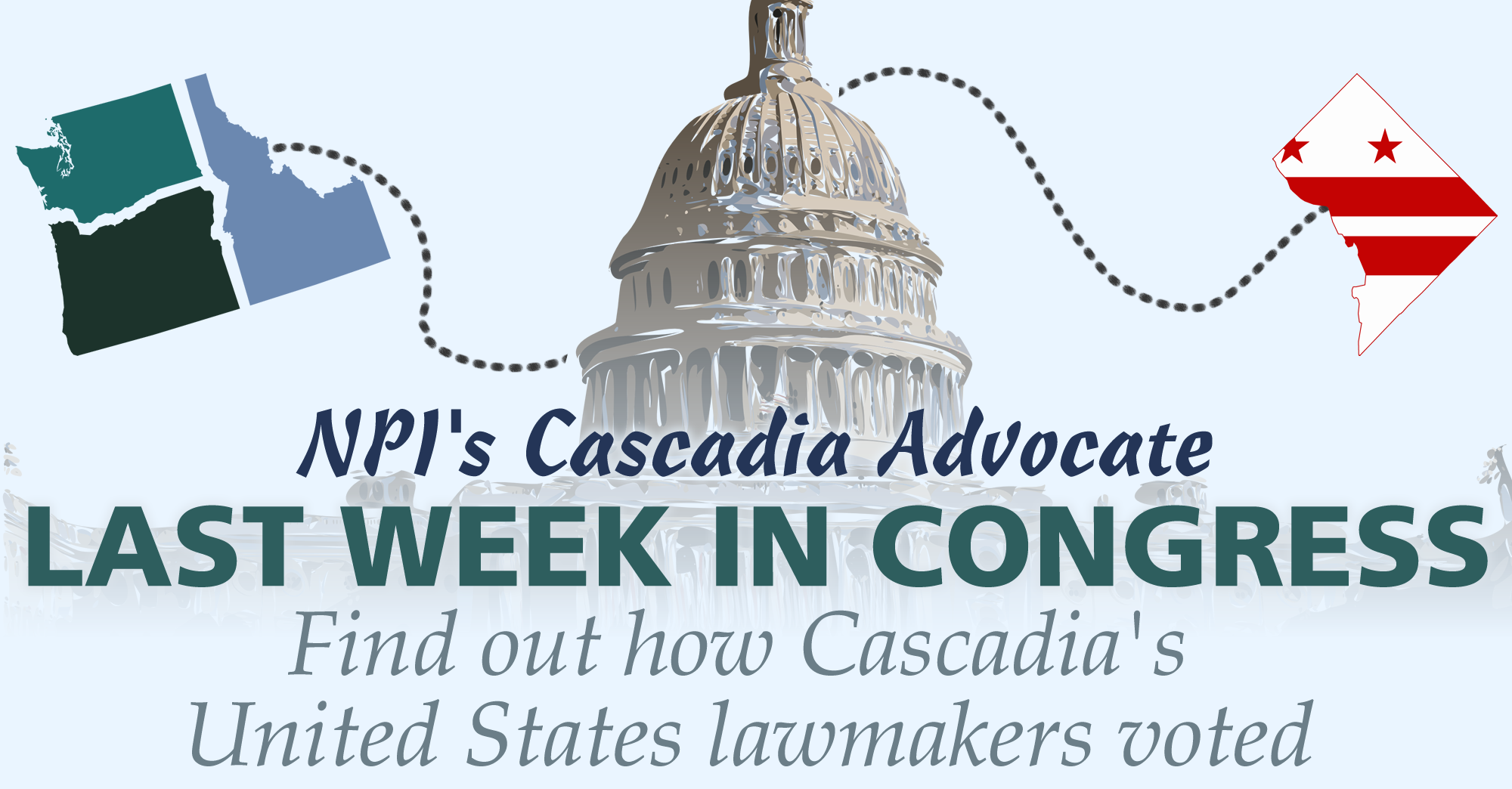Good morning! Here’s how Cascadia’s United States Senators voted on major issues during the legislative week ending Friday, May 8th, 2020.
The House was in recess.
In the United States Senate

CONFIRMING HEAD OF COUNTERINTELLIGENCE: Voting 84 for and seven against, the Senate on May 6th confirmed William R. Evanina as director of the National Counterintelligence and Security Center over criticism that he has been a reluctant supporter of whistleblower rights. The NCSC is the lead U.S. agency for safeguarding America against foreign intelligence penetrations.
The vote keeps Evanina in a post he assumed in 2014 when Senate confirmation was not required. After joining the FBI as a special agent in 1996, he investigated organized crime and terrorist activities, and he was promoted in 2013 to head FBI-CIA joint counterintelligence operations. In 2014, Evanina was tasked with putting into effect a new law prohibiting retaliation against whistleblowers in the intelligence community by revoking their security clearances.
Senate critics say that six years later, he has not yet completed that assignment.
Mark Warner, D‑Virginia, called the confirmation essential at a time when the U.S. intelligence community has no Senate-confirmed appointees in its top ranks. He said “now more than ever, we need at least one career intelligence professional with a good record, confirmed by this Senate, standing guard over” spy and counter-spy operations.
Ron Wyden, D‑Oregon, said: “The fact is that Mr. Evanina has failed repeatedly the key test on protecting whistleblower rights. Specifically, he failed to enact whistleblower protections that the Congress required in 2014.A six-year track record of letting down whistleblowers and failing to follow the law.”
A yes vote was to confirm the nominee.
 | Voting Aye (2): |
 | Voting Nay (2): |
 | Voting Aye (1): Democratic Senator Maria Cantwell Not Voting (1): Democratic Senator Patty Murray |
Cascadia total: 3 aye votes, 2 nay votes, 1 not voting
UPHOLDING VETO OF WAR POWERS BILL: Voting 49 for and 44 against, the Senate on May 7th failed to reach a two-thirds threshold needed to overturn Donald Trump’s veto of a resolution (S.J. Res 68) concerning the possibility of war with Iran. The measure sought to require the administration to obtain advance congressional approval for actions against Iran or its proxy forces except when there is an imminent threat to the United States.
It did so by invoking the 1973 War Powers Resolution, which asserts the power of Congress to declare war under Article I of the Constitution.
Under the 1973 law, presidents must notify Congress within forty-eight hours when they send the U.S. military into combat, then withdraw the forces within a set period unless Congress has authorized the action.
Jeff Merkley, D‑Oregon, said that as a result of Trump’s words and actions, “we have come within a hair’s breadth of war with Iran.The founding fathers were adamant about not having anything resembling a king in the new country they were building. The president was given the power to lead the nation’s armed forces as commander in chief, but Article I, Section 8 of the Constitution stated: ‘The Congress shall have Power… To declare war.’ ”
James Inhofe, R‑Oklahoma, said “nobody should want a policy that would leave Americans vulnerable to the whims of Iran’s terrorist-supporting regime. If we do that, if we tie the president’s hands so that he cannot defend American lives, we leave ourselves more vulnerable and, therefore, make war infinitely more likely, and accordingly, we must all vote to sustain the President’s veto.”
A yes vote was to override the veto.
 | Voting Nay (2): |
 | Voting Aye (2): |
 | Voting Aye (1): Democratic Senator Maria Cantwell Not Voting (1): Democratic Senator Patty Murray |
Cascadia total: 3 aye votes, 2 nay votes, 1 not voting
Key votes ahead
The House will take up Congress’s fifth coronavirus relief bill in the week of May 11th, while the Senate will vote on judicial and executive branch nominations.
Editor’s Note: The information in NPI’s weekly How Cascadia’s U.S. lawmakers voted feature is provided by Voterama in Congress, a service of Thomas Voting Reports. All rights are reserved. Reproduction of this post is not permitted, not even with attribution. Use the permanent link to this post to share it… thanks!
© 2020 Thomas Voting Reports.

